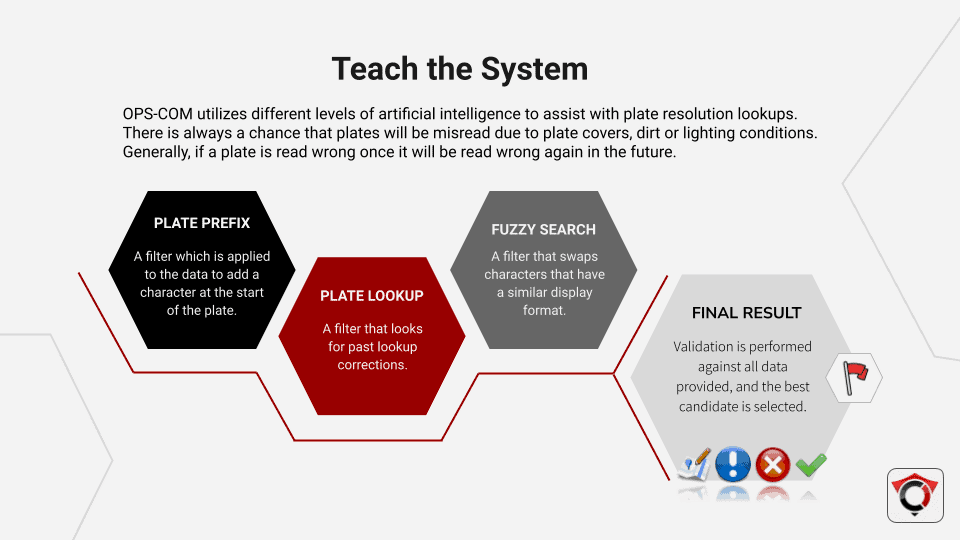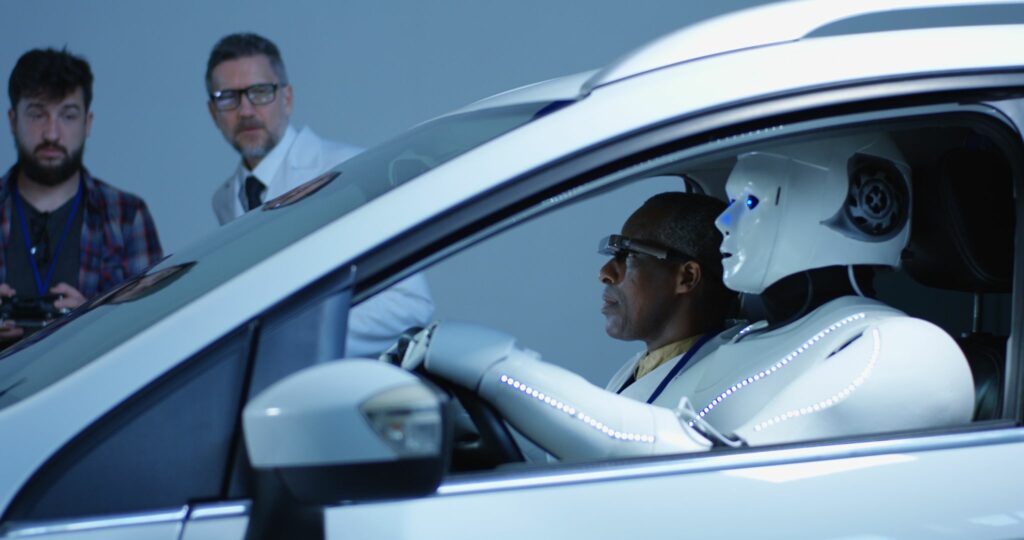The Power of AI in Parking Enforcement

As we enter an era of technological marvels, unveiling the intricate web of AI that powers modern parking enforcement is only fitting. This blog post takes you on a journey through the evolution and significance of AI in managing our parking spaces efficiently.
AI: The Game-Changer in Parking Enforcement
How AI is Revolutionizing Parking Management
AI, or Artificial Intelligence, has emerged as a transformative force in the world of parking enforcement. By employing AI-driven solutions, cities, and parking authorities have revolutionized how they manage parking spaces, ensuring better compliance and a smoother parking experience for all.
AI-driven parking management systems leverage a combination of technologies like machine learning, computer vision, and IoT (Internet of Things) to streamline the entire process.
1. Automated License Plate Recognition (ALPR):
ALPR systems use cameras and AI algorithms to read and interpret license plates. This technology enables quick identification of parked vehicles, making it easier to enforce parking regulations without the need for manual checks.
2. Real-Time Data Analysis:
AI systems analyze data in real-time to provide valuable insights into parking patterns and usage. This information helps cities and parking authorities optimize their parking resources, adjust pricing dynamically based on demand, and plan for future infrastructure needs.
3. Smart Parking Solutions:
AI integrates with smart parking systems to offer features like real-time availability of parking spaces, mobile app-based parking reservations, and even guidance to the nearest available spot. This greatly reduces the time and fuel spent by drivers in search of parking, thereby contributing to a reduction in traffic congestion and pollution.
4. Enhanced Compliance and Revenue Collection:
By automating the detection of parking violations and issuing e-tickets, AI-enabled systems ensure higher compliance with parking rules. This not only streamlines enforcement but also improves revenue collection for city authorities.
5. Predictive Analysis for Planning:
AI can predict parking trends and demand using historical data. This predictive capability assists city planners and developers in designing more efficient parking spaces and integrating them better with other modes of urban transport.
6. Environmental Impact:
Reduced search time for parking means less vehicle emissions. AI’s role in improving parking efficiency directly contributes to environmental sustainability by reducing the carbon footprint of urban transportation.
7. Improved User Experience:
With features like mobile payments and notifications about parking time limits, AI-powered parking management systems offer a more user-friendly experience, leading to higher satisfaction among motorists.
The Evolution of Parking Enforcement
Gone are the days of manual ticketing and enforcement. AI has ushered in a new era where parking enforcement is not just efficient but also data-driven and intelligent.
Understanding AI
The Essence of AI
Let’s break down the essence of AI. AI encompasses a range of technologies, including Machine Learning (ML) and deep learning, that empower systems to make intelligent decisions regarding parking enforcement, such as identifying violations and optimizing parking space usage.
Pivotal Role in Parking Enforcement
AI processes data from various sources, learns from patterns and anomalies, and uses neural networks to solve complex problems. In parking enforcement, AI’s unified concept results in better detection of violations, improved parking space management, and enhanced security.
Imagine AI as a detective with a magnifying glass, examining loads of data from cameras, sensors, and more. It learns from what it sees – like which spots get filled up quickly and when someone’s parked too long.
Using what’s called neural networks (think of them as brain cells), AI solves tricky puzzles in parking enforcement. It’s like having a high-tech helper who’s always one step ahead, making sure parking spaces are used smartly and keeping things safe and secure.
A Unified Concept for Advanced Tech
By focusing on AI as a unified concept, we can appreciate the synergy of various advanced technologies working seamlessly together to provide real-time insights, increase efficiency, and reduce human errors.
When we talk about AI, it’s like talking about a superstar team of technologies. They all work together like a well-oiled machine, giving us the lowdown on what’s happening in real-time, making parking systems more efficient, and cutting down on silly human mistakes

Benefits of AI-Powered Parking Systems
Enhanced Accuracy and Efficiency
AI-driven parking systems boast unparalleled accuracy in detecting violations. This reduces false alarms and ensures that parking enforcement is fair and just.
Real-Time Insights for Better Decisions
Real-time data collected by AI systems allows parking authorities to make informed decisions promptly. Adjusting parking rates, managing traffic flow, and optimizing space usage become more efficient.
Data-Driven Parking Enforcement
The integration of AI results in data-driven parking enforcement. This means more effective revenue collection, improved security, and enhanced overall management.
The Future of Parking Enforcement
Potential Innovations and Advancements
The future of parking enforcement looks promising. Innovations in AI are on the horizon, offering even more sophisticated solutions. Imagine predictive parking availability, automated traffic management, and seamless payment systems.
The Path Towards Smarter Cities
The integration of AI in parking enforcement is just one piece of the puzzle. As cities become smarter, AI will play a pivotal role in enhancing the overall urban experience, making cities more efficient and user-friendly.
FAQs
How does AI improve parking enforcement?
AI improves parking enforcement by using advanced technologies to monitor parking spaces, identify violations, and optimize space usage. AI-powered cameras and sensors can detect when a vehicle enters or exits a parking spot, providing real-time data. Machine learning algorithms analyze this data to identify parking violations more accurately and efficiently than traditional methods. This leads to fairer enforcement, reduced congestion, and enhanced security in parking areas.
Are there privacy concerns with AI in parking enforcement?
Yes, there are privacy concerns associated with AI in parking enforcement. AI systems often rely on cameras and sensors to collect data, which can raise privacy issues if not managed carefully. To address these concerns, it’s crucial to implement robust data protection measures, anonymize personal information, and adhere to privacy regulations. Transparent communication with the public about data usage and retention policies is also essential to build trust.
Can AI predict parking space availability?
Yes, AI can predict parking space availability. By analyzing historical data, real-time occupancy information, and even factors like local events or weather conditions, AI algorithms can provide accurate predictions of parking space availability. This helps drivers find parking quickly, reducing congestion and frustration.
How can AI improve traffic management in parking lots?
AI can significantly improve traffic management in parking lots by optimizing the flow of vehicles. AI-powered systems can monitor the number of vehicles entering and exiting the parking area, efficiently guiding drivers to available spaces. Moreover, AI can adjust parking rates in real-time to encourage better space utilization and reduce the time spent searching for parking.
What’s the role of AI in parking payment systems?
AI plays a crucial role in parking payment systems by streamlining the payment process. AI-powered payment kiosks and apps can provide convenient payment options like mobile payments and contactless transactions. Additionally, AI can help prevent payment fraud and ensure accurate billing, enhancing the overall user experience in parking facilities.
Paving the Way to Smarter Parking Solutions
The rise of AI in parking enforcement is unstoppable. By understanding AI as a unified concept, we can appreciate how it transforms how we manage parking spaces, paving the way for smarter and more efficient cities.
With AI as our compass, we navigate toward a future where parking is convenient and a seamless, stress-free experience. As we embrace these innovations, we’re driving toward smarter cities, one parking space at a time.
So, fasten your seatbelts as we continue to explore the ever-evolving landscape of technology-driven parking solutions.


